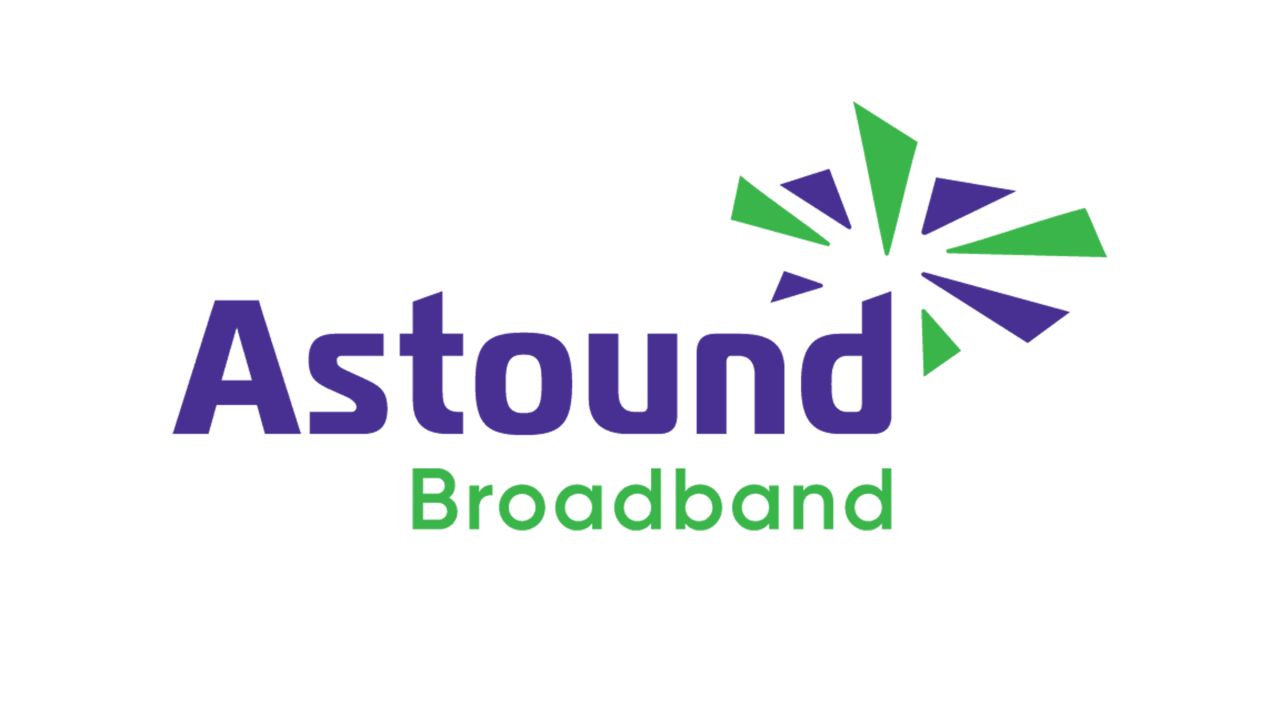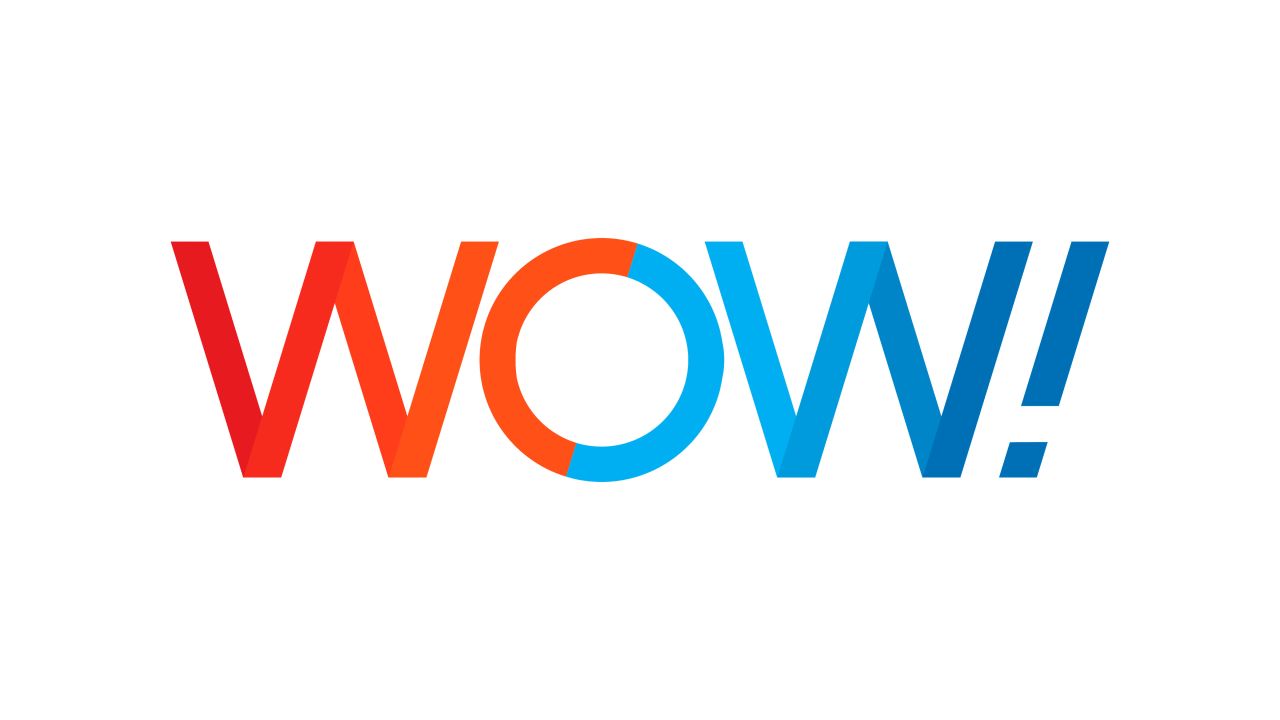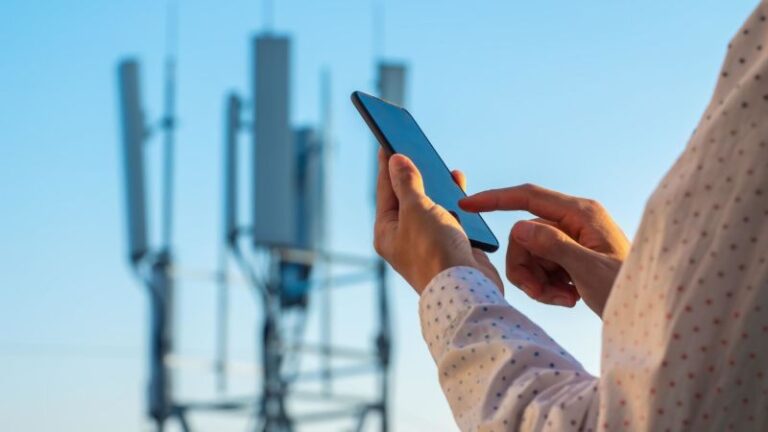The arrival of 5G technology in the United States has come with its fair share of conspiracy theories and controversy, but 5G is worth trying to understand. The newest generation of wireless data networks, 5G offers faster data transmission speeds and less lag and delay than the older, but still in use, 4G network.
The new technology allows for high-speed wireless internet, and many internet service providers (ISPs) now offer 5G home internet. That means your home network no longer requires cables, fiber optics or any other physical connection. Although 5G infrastructure is still rolling out nationwide, 5G internet can reach faster speeds than cable and get close to fiber internet speeds.
To help you decide if 5G internet is right for you, we’ve researched and identified the best 5G home internet providers on the market today.
Our picks
T-Mobile Home Internet: Best 5G internet
Verizon 5G: Best 5G internet bundles
Astound Broadband: Best for unlimited 5G
WideOpenWest: Best for basic internet
T-Mobile Home Internet: Best 5G internet

Star rating: 4.8 out of 5
Price: $40 – $60 per month
Download speeds: 72 Mbps – 245 Mbps
Availability: Nationwide
Why we picked T-Mobile
Since merging with Sprint in 2020, T-Mobile has ramped production to build the nation’s largest 5G network, covering 53.79% of American households. Add that to strong download speeds and seamless self-installation options, and T-Mobile is our top choice for the best 5G home internet.
Who should use T-Mobile
If you don’t have access to high-speed fiber or cable alternatives, T-Mobile 5G Home Internet offers competitive speeds at just $50 per month ($40 when enrolled in AutoPay).
Pros and cons of T-Mobile Home Internet
Pros
- Largest 5G network, covering 54% of American households
- Excellent download speeds for 5G
- Easy DIY installation
Cons
- 4G network is less extensive, limiting coverage
- More expensive than other options
Verizon 5G: Best 5G internet bundles

Star rating: 4.6 out of 5
Price: $35 – $80 per month
Download speeds: 50 Mbps – 1,000 Mbps
Availability: 40 states*
Why we picked Verizon 5G
Despite having a more limited reach than some competitors, Verizon 5G offers some of the fastest 5G home internet speeds. One base plan offers 300 Mbps download speeds, suitable for heavy-duty streaming and gaming, and it starts at just $35 per month with AutoPay. Better prices are available when bundling other services.
Who should use Verizon 5G
Verizon 5G is the best home internet option for gamers and families who use heavy-duty internet resources. Existing Verizon customers can also save by bundling 5G internet and mobile plans.
Pros and cons of Verizon 5G Wireless Internet
Pros
- High speeds on basic plan
- No extra equipment fees
- No data caps
Cons
- Price subject to change after 2- or 3-year price-lock period
- Limited connectivity in many rural areas
- Internet speeds affected by connection quality and cell traffic
* Check this service map to see if Verizon 5G is available in your area.
Astound Broadband: Best for unlimited 5G

Star rating: 4.3 out of 5
Price: $20 – $55 per month
Download speeds: 300 Mbps – 1,000 Mbps
Availability: 5G internet available in 10 states and Washington, D.C.; 5G network available nationwide
Why we picked Astound Broadband
Astound Broadband 5G internet has carved out a niche as an affordable 5G internet option that leverages T-Mobile’s network. While Astound Broadband’s mobile network is robust, it still has limited 5G home internet availability. With strong speeds and a 300 Mbps unlimited plan starting at just $20, it’s a great budget-friendly option for 5G internet.
Who should use Astound Broadband
This is a great choice for students living on a budget who need both high-speed home internet and mobile services at an affordable price.
Pros and cons of Astound Broadband
Pros
- No data caps with unlimited plans
- Affordable, especially when bundling
- Strong customer reviews
Cons
- Limited home internet availability
- Have to pay more for unlimited data
WideOpenWest: Best for basic internet

Star rating: 4.1 out of 5
Price: $15 – $45 per month (per line)
Download speeds: 30 Mbps – 1,200 Mbps
Availability: 6 states
Why we picked WideOpenWest
The smallest ISP on this list, WideOpenWest, operates in just six states. Where it does offer 5G internet, it delivers reliable service for unbeatable prices. With a Better Business Bureau rating of A+ and plans starting at just $15 per month, WOW leans on a strong customer service record and surprisingly strong upload speeds of up to 50 Mbps. As of February 2024, WOW no longer has data caps on plans starting at 300 Mbps, removing one of its most significant drawbacks compared with competitors.
Who should use WideOpenWest
WoW is well-suited for students, retirees or anyone living on a fixed income who just needs basic internet access.
Pros and cons of WideOpenWest
Pros
- No contract required
- Most affordable on this list
- A+ BBB rating
Cons
- Data caps on plans below 300 Mbps
- Lowest availability on this list
|
Price |
Speed |
Availability |
|
|---|---|---|---|
| T-Mobile |
$40 – 60 per month |
72 Mbps – 245 Mbps |
50 states |
| Verizon 5G |
$35 – 80 per month |
50 Mbps – 1,000 Mbps |
40 states |
| Astound Broadband |
$20 – 55 per month |
300 Mbps – 1,000 Mbps |
10 states |
| WideOpenWest |
$15 – 45 per month |
30 Mbps – 1,200 Mbps |
6 states |
One 5G ISP that missed our cut was AT&T Internet. Despite nationwide coverage, it lost points for its comparatively low download speeds and high prices for 5G internet—starting at $60 per month for 75 Mbps.
Fiber is still the fastest internet option, but 5G home internet, with download speeds ranging from 30 Mbps to 1,000 Mbps, is comparable to cable internet, which averages 25 to 1,200 Mbps.
Remember, since 5G utilizes cell network coverage, it may function similarly. Even if you have a 300 Mbps plan, you may have less reliable high-speed service if you’re at the edge of a coverage area.
Where 5G home internet is most competitive against other connection types is in cost. While cable has roughly the same speeds, it costs more on average than 5G home internet. Plans cost an average of $15 to $70 per month and usually have no installation fees. Cable is in the $20-to-$115-per-month range and often requires installation and other service fees.
The main reason for using 5G home internet is the same as choosing fiber internet: It’s fast. But there are several good reasons to choose it over other types, including the following:
- Availability: Cable and fiber internet service usually reaches your home through a physical line like a coaxial or fiber optic cable. In many rural areas, the most available internet is from satellites. A little bit of both are offered by 5G, with the wireless aspect of satellite internet transmitted from a local tower. As more 5G infrastructure is built, it may be the best choice for high-speed internet, as opposed to physical connection types like cable and fiber.
- Cost: Depending on your location, 5G home internet may cost less than cable or fiber internet. Since companies don’t have to install or service individual cables, 5G is more cost-effective for them, leading to better high-speed internet prices for you.
- No or limited installation: Some 5G home internet companies may have to install some equipment in your home, but generally, the home installation process is far easier and less expensive than other internet types. Once you sign up for a plan, you may just need to plug in a router to have instant home internet.
5G home internet offers fast internet speeds without the need for cable connections or fiber optics. However, 5G infrastructure is still early in its nationwide rollout. As of September 2023, 5G internet was available to only 47% of American households.
People who work from home and take a lot of video calls or spend a lot of time online gaming may not like 5G’s potential technical drawbacks (cellular outages) and slower upload speeds. In those cases, it may make more sense to go with a fiber or cable option.
So, who is it right for?
- People in covered areas: 5G works as both a cellular network and a home internet service. As such, people in areas with good 5G coverage can benefit by bundling their home internet and mobile plans to take advantage of 5G’s high speeds.
- Very connected families: 5G doesn’t offer quite the same speeds and reliability as fiber internet, but it’s comparable, making it a great choice for families with several devices connected to the home network at all times.
- Creatives: People who use heavy browsing resources and download large files like .mp3s and .psds will appreciate 5G internet’s fast download speeds.
Choosing the right 5G home internet plan depends on several key factors.
As mentioned, 5G home internet tends to be less expensive than fiber or cable internet. Still, a considerable range of plans are available depending on where you are. Likewise, you need to be aware of data caps and download speeds to ensure you’re getting the best bang for your buck.
Some ISPs give discounts for switching to their service or for bundling with other offerings, so check out what promotions may be available in your area. And if you use a mobile carrier like Verizon or T-Mobile, it’s worth seeing what it would cost to bundle your 5G home internet plan.
The most crucial consideration in any home internet decision is availability. However, it’s a little more complicated with 5G. Even though 5G internet may technically be available in your area, you may be on the edge of a coverage area or split between two different companies’ coverage areas.
Most major urban areas have 5G options, but companies, including T-Mobile and Verizon, have extensive networks that reach more rural areas. Before you decide on a provider, look at its coverage maps to see what kind of service you can expect.
Most 5G ISPs offer plans with no contracts, no hidden fees and no price hikes. That said, that’s not always the case. Some plans may come with data caps that either slow down your internet or charge you data overage fees if you surpass your monthly data allotment. Some companies may charge you a rental fee for equipment, such as a modem or Wi-Fi router, or require you to purchase it from them.
Since 5G is generally easy to set up, installation and equipment fees are rare, but review your plan details carefully before signing.
pro tip
- Even if you have 5G home internet available, there’s no guarantee that you will have the faster mmWave 5G. However, any ISP will tell you what kind of service and speed you should expect in your area with any given plan.
Home internet providers utilize two types of 5G technology: sub-6 and millimeter wave (mmWave). Sub-6 5G uses frequencies below 6GHz (gigahertz) and has been easier to deploy for major providers like T-Mobile and Verizon by upgrading existing cellular towers. On the other hand, mmWave uses frequencies between 30 and 300 Ghz, with smaller waves with a shorter range but an overall faster speed than Sub-6 5G. Infrastructure improvements required for mmWave are more extensive, making it less common in the United States, but it is becoming more prevalent.
Most 5G home ISPs offer base plans of about 200 or 300 Mbps of download speed, which is more than enough to support streaming and online gaming. However, the upload speeds for 5G fall short of cable and fiber, which can make video calls, streaming and online gaming experiences worse than with cable. Speed varies based on plan and location, so be thorough when checking coverage maps and reviewing plan options.


